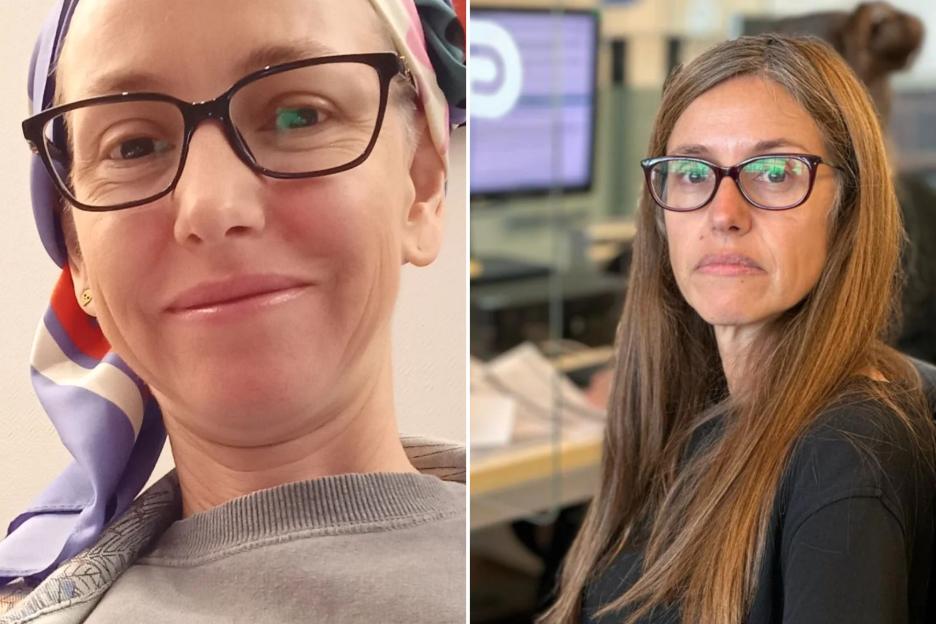A HUGE percentage of middle-aged and older adults with autism in the UK have never been diagnosed with the condition, a shocking report has revealed.
Researchers from King’s College London estimate 89 per cent of autistic adults between the ages of 40 and 59 remain undiagnosed.
 Autism is a neurodevelopmental condition that affects how people socialise, communicate and interact with the world
Autism is a neurodevelopmental condition that affects how people socialise, communicate and interact with the world
As for people with autism aged 60 and above, it’s thought 97 per cent don’t have a diagnosis, depriving them of essential support.
The review – the largest of its kind according to researchers – showed that adults with autism face higher rates of illness – from autoimmune conditions to heart disease , dementia and Parkinson’s – and struggle more with their mental health .
Autistic adults were found to be four times more likely to develop early onset dementia, compared to non-autistic people.
They were also six times more likely to experience to experience thoughts of self-harm and suicide.
Lead author Dr Gavin Stewart, from the Institute of Psychiatry, Psychology & Neuroscience (IoPPN) at King’s College London, said: “These very high underdiagnosis estimates suggest that many autistic adults will have never been recognised as being autistic, and will have not been offered the right support.
“This could make them more susceptible to age-related problems, for example being socially isolated and having poorer health.
“The high rates of underdiagnosis also mean that much of our research has systematically overlooked a large proportion of the autistic population, potentially skewing our understanding of how autistic people age, and leaving critical gaps in policy and services.”
Autism is not an illness or disease – it is a neurodevelopmental condition that affects how people socialise, communicate and interact with the world.
Autistic people may find socialising confusing or tiring, become overwhelmed in loud or crowded places and crave order and routine.
They may have intense interests, prefer order and routine, and use repeated movements or actions to calm themselves or express joy.
Many mask their discomfort to try and fit in.
Research into how people with autism age has increased nearly fourfold since 2012 but it still only makes up a tiny portion of research into autism, which often tends to focus on children and younger people.
Only 0.4 per cent of research on autism since 1980 has focused on people in midlife or older, the study authors said.
The review, published in the Annual Review of Developmental Psychology, re-analysed previous research on UK healthcare record data from 2018 and summarised research into ageing adults with autism.
It found that adults with autistic traits face challenges to their physical and mental health as they go through midlife and older age, possibly exacerbated by a lack of diagnosis.
They faced higher rates of physical health conditions such as immune diseases, cardiovascular disease, neurological disorders, gastrointestinal disorders, as well as associated with older age, such as Parkinson’s disease, cognitive disorders like dementia, osteoporosis and arthritis.
Autistic adults also faced higher rates of mental health conditions like depression and anxiety compared to non-autistic adults.
Their average life expectancy was also six years lower, with autistic people expected to live to 75, compared to 81 for non-autistic people.
The key characteristics of autism - and why they go unnoticed
By Alice Fuller , Health Features Editor
MODEL Christine McGuinness was a “recluse” for eight years and only left the house at 3am.
Springwatch presenter Chris Packham says it makes him a “task-centric workaholic who sees problems in everything he does”.
And recently, Bella Ramsey revealed they were diagnosed after struggling to wear thermals on the set of The Last of Us .
But what exactly is autism and why does it seem so different in everyone ?
Leanne Cooper-Brown, neurodevelopmental lead at Clinical Partners , tells Sun Health: “Autism is considered a spectrum, so not all people share the same traits.
“Whereas we used to think of autism as a linear line, we have come to realise that terms such as ‘high’ and ‘low’ functioning or definitions of ‘mild’, ‘moderate’ or ‘severe’ aren’t helpful and can be misleading.
“Nowadays, we think of autism in terms of the strengths and needs of the individual, which can change over time depending on their environment and support network.”
About 700,000 people in the UK are thought to have autism – that’s one in 100.
But research by University College London suggests that number could be twice as high, as many people remain undiagnosed.
Cases are on the rise though. Figures released last year showed a 175 per cent increase from 2011 to 2022.
Dr Selina Warlow, clinical psychologist and owner of The Nook Neurodevelopmental Clinic , says: “Conversation around neurodiversity is becoming normalised, and that’s so positive to see. But more awareness is needed.
“Receiving a diagnosis can open access to expert resources that support autistic people to thrive in society.”
Autism has long been associated with social difficulties, like problems maintaining conversations and forming relationships .
But research published in the journal Cell Press suggested that repetitive behaviours – like rocking or finger-flicking – and special interests – whether it’s TV shows or specific animals – are more indicative of an autism diagnosis.
Generally though, experts say the core characteristics include…
- Sensitivity – autistic people can be much more or less sensitive to sights, sounds, textures, tastes and smells. For example, they find bright lights or crowded spaces overwhelming, Leanne says. They may also stand too close to others or need to move their whole body to look at something.
- Stimming – to manage this sensory overload, some people use repetitive movements or sounds. “This is called stimming, and includes rocking, tapping and hand-flapping,” Dr Warlow says. “Though it’s something everyone does to some extent, those with autism are likely to engage with it as a form of self-regulation.”
- Masking – this is a strategy used by some autistic people, consciously or not, to match neurotypical people, Dr Warlow says. “It’s a way of hiding your true characteristics, and could involve copying facial expressions, planning conversations in advance, or holding in ‘stimming’ – swapping hand clapping with playing with a pen, for example,” she adds.
- Burnout – this is a state of physical, mental and emotional exhaustion and is a common feature in autism. “Being extremely tired, both mentally and physically, can be associated with the act of masking for a long period of time, or sensory or social overload,” Dr Warlow says. “Symptoms of autistic burnout include social withdrawal, reduced performance and increased sensitivity.”
- Social struggles – socialising can be confusing or tiring for autistic people. They often find it hard to understand what others are thinking or feeling, making it challenging to make friends. Leanne says: “In adults, autism may present as difficulties with interpreting social cues such as understanding body language or sarcasm, struggling to express emotions or preferring to be alone. This can impact relationships and work.”
- Routine – many of us have a fairly regular daily schedule. But for autistic people, this becomes a “very strong preference for routine”, Leanne says. This could be needing a daily timetable to know what is going to happen and when, or having rigid preferences about foods or clothing.
- Literal thinking – some autistic people have a literal view of language – like believing it’s actually “raining cats and dogs” or that someone really wants you to “break a leg”. Dr Warlow says: “This can result in confusion with figures of speech, irony or indirect requests. “For instance, being told to ‘pull your socks up’ might be understood literally, not as a motivational phrase.”
- Hyperfocus – often associated with ADHD, hyperfocusing is also common in autistic people. “It’s where you’re able to focus intensely on an activity and become absorbed to the point of forgetting about time,” Dr Warlow says. “This is useful in work or hobbies but can result in neglect of other aspects of life, such as food or rest.”
- Special interests – we all have hobbies and interests, but for autistic people, these are so compelling they often want to spend all their time learning about, thinking about or doing them. “Special interests could include anything from dinosaurs to superheroes, and gardening to music,” Dr Warlow says. “These usually begin in childhood, but can also form as an adult. “Chris Packham is an example of an autistic person who turned his childhood special interest in animals into a successful career, becoming one of the UK’s best-loved natural world TV presenters.
The authors warn that these figures may be skewed due to high rates of underdiagnoses.
The review noted autistic adults experience barriers to receiving healthcare support, as they have to navigate systems not designed for them.
These barriers included factors associated with autistic traits, such as communication differences and sensory sensitivities, as well as concerns about continuity of care, uncertainty about which services to access, and limited clinician understanding of autism in adulthood.
Finally, autistic adults also faced poorer outcomes in employment , relationships and quality of life.
Researchers noted high rates of social isolation among adults with autism and said strong social support is linked to better quality of life.
Tim Nicholls, Assistant Director of Policy, Research and Strategy at the National Autistic Society, told The Sun: “This research clearly shows what we already know and hear about every day – there are high numbers of undiagnosed autistic adults and going through life without a diagnosis has a major impact on many aspects of their lives.
“Autism assessments can be the first step to understanding people’s needs and a diagnosis can be life changing and, in some cases, lifesaving.
“Autistic people and their families face a constant fight for support and far too often this starts with long waits for a diagnosis.
“The Government must provide urgent funding for diagnosis services and make sure autistic people and families get the support they need when they need it.”
Co-author of the review Professor Francesca Happé said: “Understanding the needs of autistic people as they age is a pressing global public health concern.
“As autistic people age, the nature of the challenges they face changes.
“We must adopt a lifespan approach that funds long-term research, integrates tailored healthcare, and expands social supports so that ageing autistic people can live happy and healthy lives.”
The researchers said more research is needed to better understand the experiences of autistic people in midlife and older age, with the aim of improving outcomes for autistic adults as they age.







